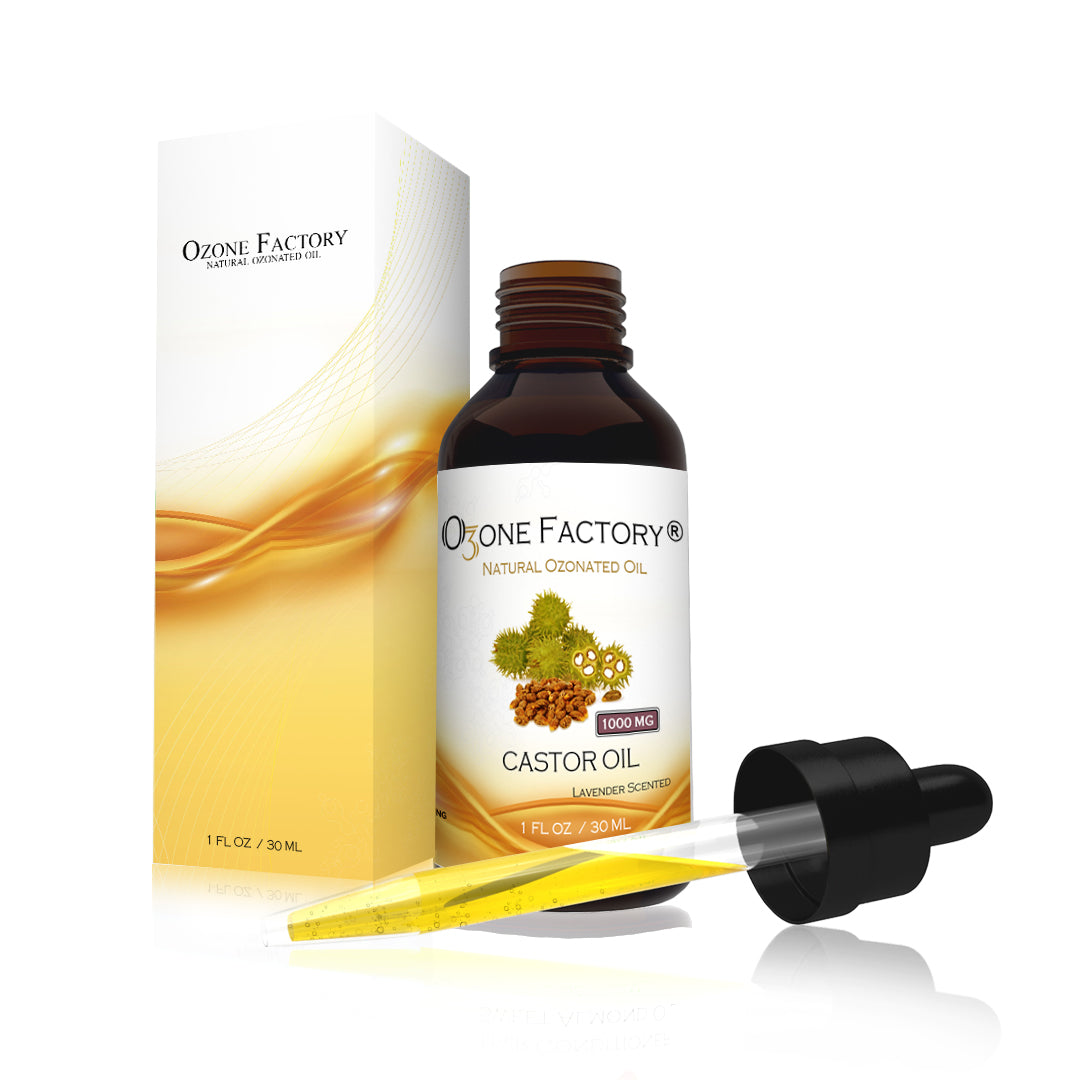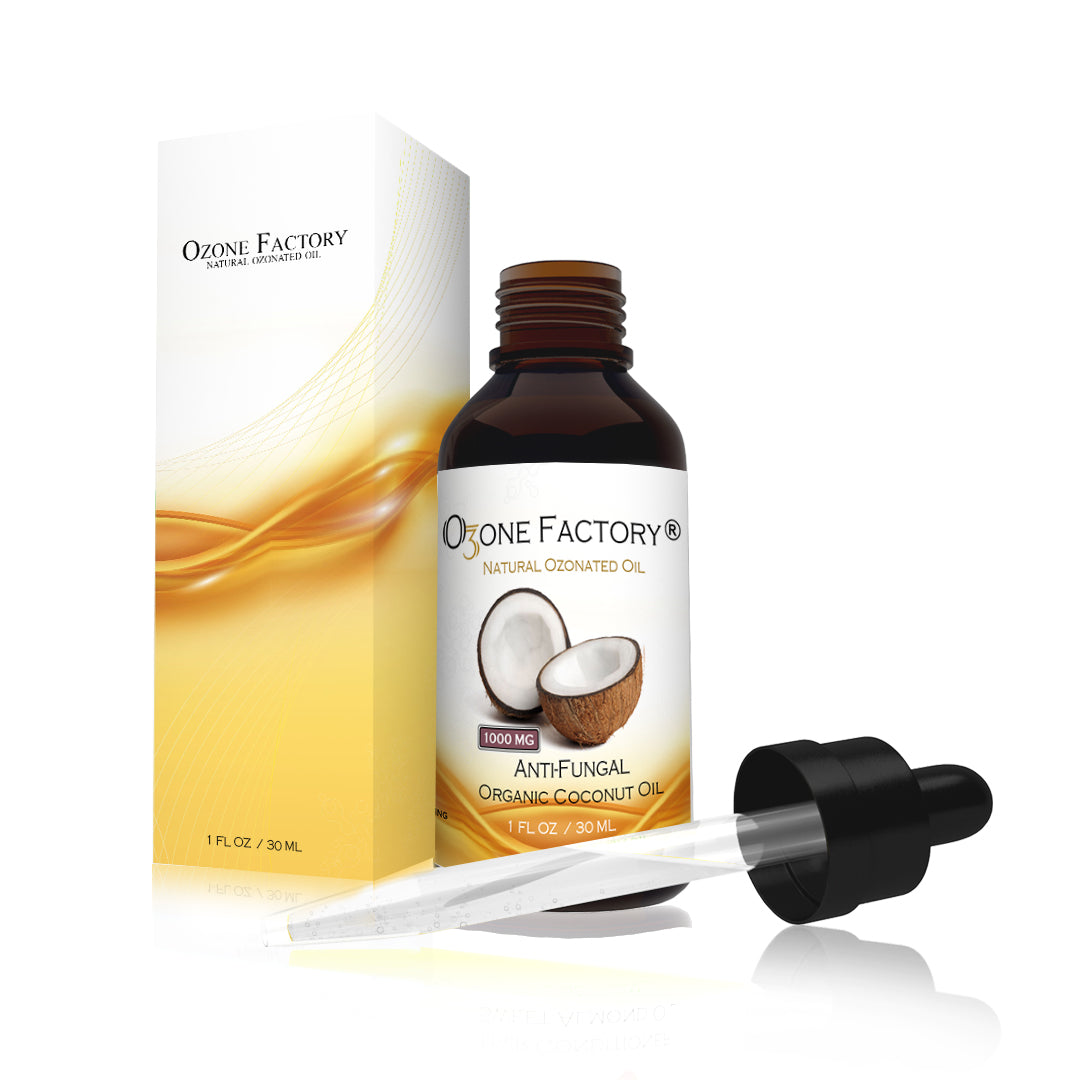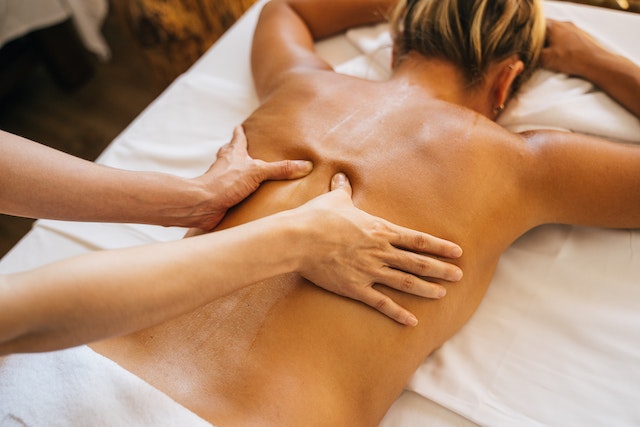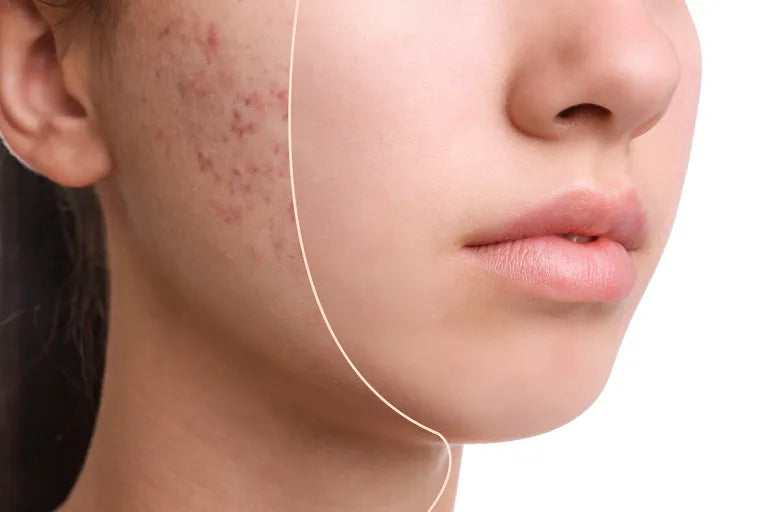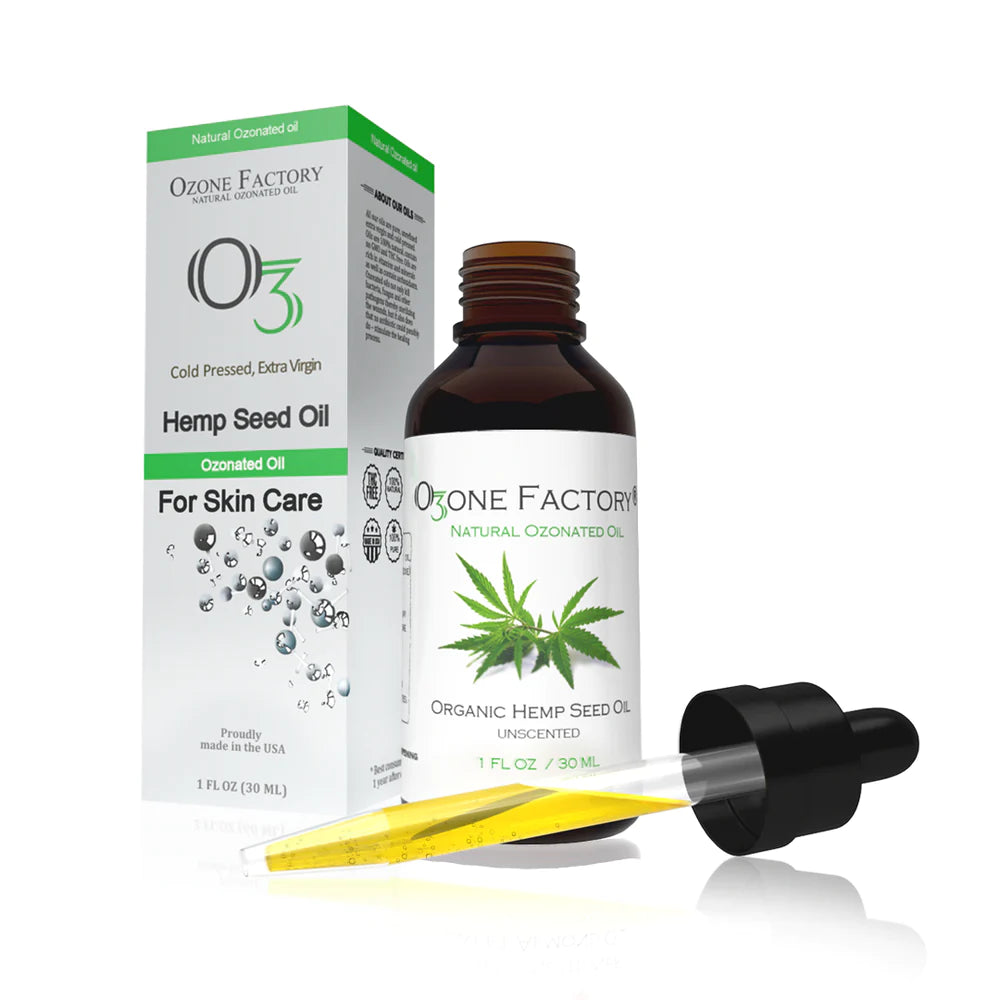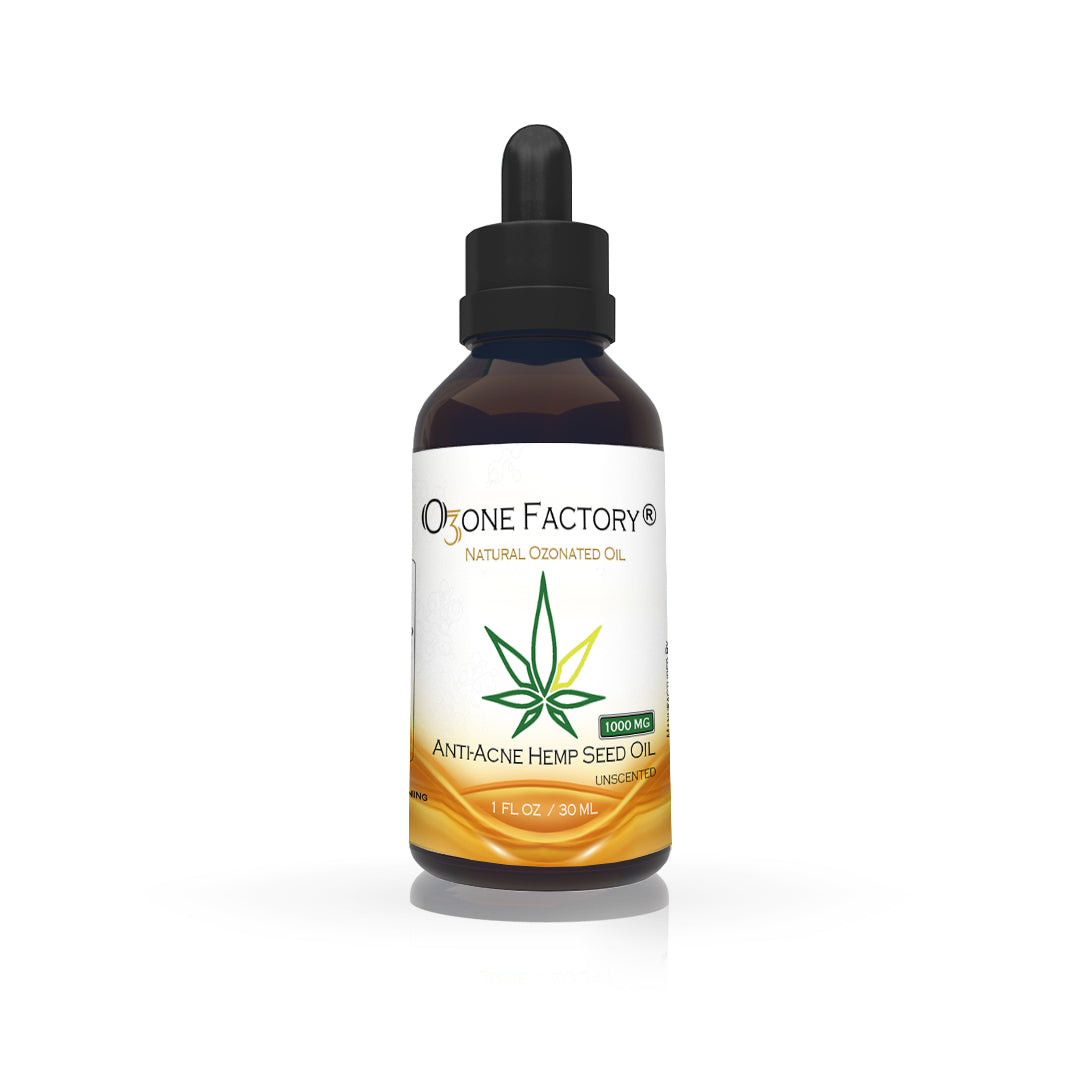
1. A natural makeup remover
Removing stubborn makeup—you know, the common culprits like mascara and waterproof products—is a pain. Often, people will reach for wipes or cotton rounds doused in makeup removers. You can skip all that and just go straight for this kitchen staple. When used as a natural makeup remover, ozonated olive oil can help dissolve the oil in your makeup products (oil attracts oil and water attracts water, remember).
To use oil as a makeup remover, we recommend massaging the oil of your choice in circular motions, then rinsing with warm water. Feel free to stick to that as your cleansing step in your skin care routine (especially if your skin is parched dry) or proceed with a water-based cleanser for a double-cleanse.

2. Use it as an oil cleanser or double-cleanse
Skin care enthusiasts swear by oil and double-cleansing methods—for clear, supple, soft skin—that won't strip away your barrier.
First up, why you should be washing your face with oils. "Oil cleansing can be a total game-changer for just about any skin type and condition," explains aesthetician Britta Plug. "Although it may seem counterintuitive to wash your face with oil, it's actually brilliant. An oil cleanser dissolves excess oils on your skin—without any of the surfactants, harsh ingredients, or necessary preservatives in foaming cleansers. This means that your face gets a super-deep clean, without any 'stripping,' or disruption of the skin's natural microbiome."

As for double cleansing, it is simply the process of washing your face first with an oil cleanser, then a water-based cleanser.
Essentially, starting with ozonated olive oil will not only help you get a deeper clean, but it can mitigate any stripping effects of a water-based cleanser that you might follow it with.
You can also simply stick with just the oil cleanse (if you have dry skin), but those with acne or combination skin will prefer to follow it up with a standard cleanser.
3. Seals in moisture
Your skin barrier function is of the utmost importance: When it's compromised, you'll experience dryness, irritation, sensitivities, and inflammation. Essentially, a good barrier begets a good complexion. You can tend to your skin barrier in a variety of ways—from balancing your microbiome to soothing irritation—but one of the most meaningful ways to help it is to seal in moisture.
Ozonated olive oil has occlusive properties, which means that it acts as a sealant, trapping in water and blocking external aggressors. When used on top of damp skin or over a water-based product, it "moisturizes" skin by helping keep the hydration in. (Olive oil doesn't have moisturizing qualities intrinsically, as it contains no water, but it does help the moisturizing process nonetheless.)

4. Acts as an antioxidant
Ozonated olive oil is notably high in vitamin E, a fat-soluble antioxidant that has impressive free-radical-fighting abilities. This likely accounts for the fact that studies have shown the oil has anti-inflammatory properties, meaning it can help soothe irritated skin and manage oxidative stress. This is an important benefit, as inflammation is one of the main causes of collagen breakdown, dark spots, and premature aging.

5. Aids in wound healing
According to anecdotal reports and some research, applying the oil topically can speed up wound healing. This is also likely tied to the high vitamin E content, as the antioxidant has been shown to reduce the appearance of scars, including those due to acne or surgery. The nutrient might also benefit scar formation during healing by interacting with lipids in cell membranes.
6. A simple cuticle oil
Keeping your tips healthy and polished is no easy feat, especially with hand washing and in the colder months. One way to make sure your fingers and nails stay in top shape is to regularly apply cuticle oil. But you don't have to go out of your way to find one: Just dab a few drops of olive oil on and gently massage it in.

7. It can be a great scalp oil
Don't forget: Your scalp is skin and should be treated as such. One way to aid a dry scalp is to gently massage in oils on a regular basis. Use your finger pads (not nails) to apply medium-firm pressure to your scalp, in a circular motion. They can be done daily or weekly for about five minutes.
After, you'll likely want to rinse it out, as it can be heavy and weigh down your roots or cause buildup—but feel free to let it sit for a while, even overnight, so your skin can really drink up the antioxidants and nutrients.

